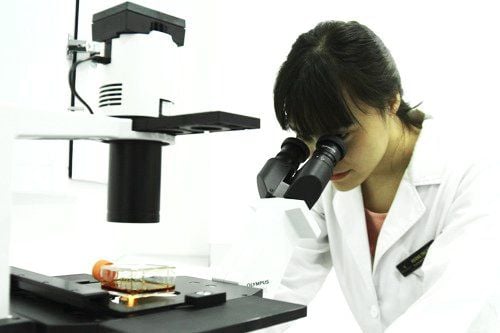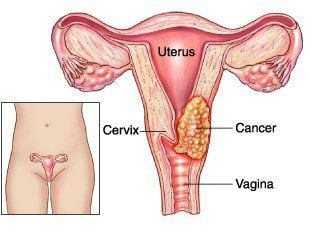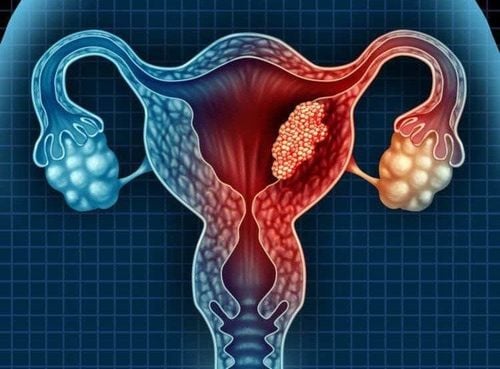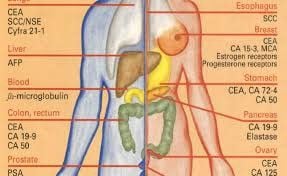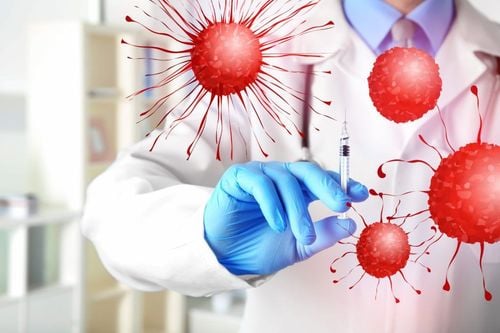This is an automatically translated article.
The article was professionally consulted by MSc Do Thi Hoang Ha - Doctor of Biochemistry, Laboratory Department - Vinmec Hai Phong International General Hospital. The doctor has 11 years of experience working in the field of clinical biochemistry.Cancer is a malignant disease that has an abnormal proliferation of cell lines with an uncontrolled number and rapid rate, in some cases will lead to aggressive invasion and metastasis to surrounding tissues and organs. When performing blood tests to assess cancer status, elevated levels of cancer markers can cause anxiety in patients when undergoing tests.
1. What is a cancer marker test?
Tumor markers are substances made by cancer cells or the body's response (normal tissue) in response to the presence of a tumor. Cancer markers are increasingly being used in clinical practice and have proven their real role in contributing to disease diagnosis, monitoring response to treatment and diagnosing cancer recurrence.Cancer markers often have the following characteristics:
There are many different types of tumor markers and they are used to assess the presence of one or more types of cancer. (Example: CEA is increased in both colorectal cancer, breast cancer, lung cancer, etc.). Often found in human body fluids such as blood, urine, feces, tumor epithelium, pleural fluid, abdominal fluid... however, the most commonly used specimen is blood. There are several types of tumor markers that are specific for cancer (localization), have a high probability of being detected at an early stage of the disease, tumor marker concentrations are often proportional to tumor volume, and are accurately determined by laboratories based on different techniques (enzymatic immunofluorescence, immunofluorescence, electroluminescence..), but in general they are not used for definitive diagnosis. cancer detection and monitoring that need to be combined with each other and with other tests. Most cases of first-time cancer will be diagnosed based on symptoms or through a combination of physical examination and the results of cancer marker tests. However, according to many experts studying cancer markers, there is no single blood test that gives 100% certainty in cancer screening to detect early disease due to some benign medical conditions or on some patients. Normal people may also have higher than normal levels of cancer markers. Some types of cancer do not produce cancer markers in the blood (no tumor markers).
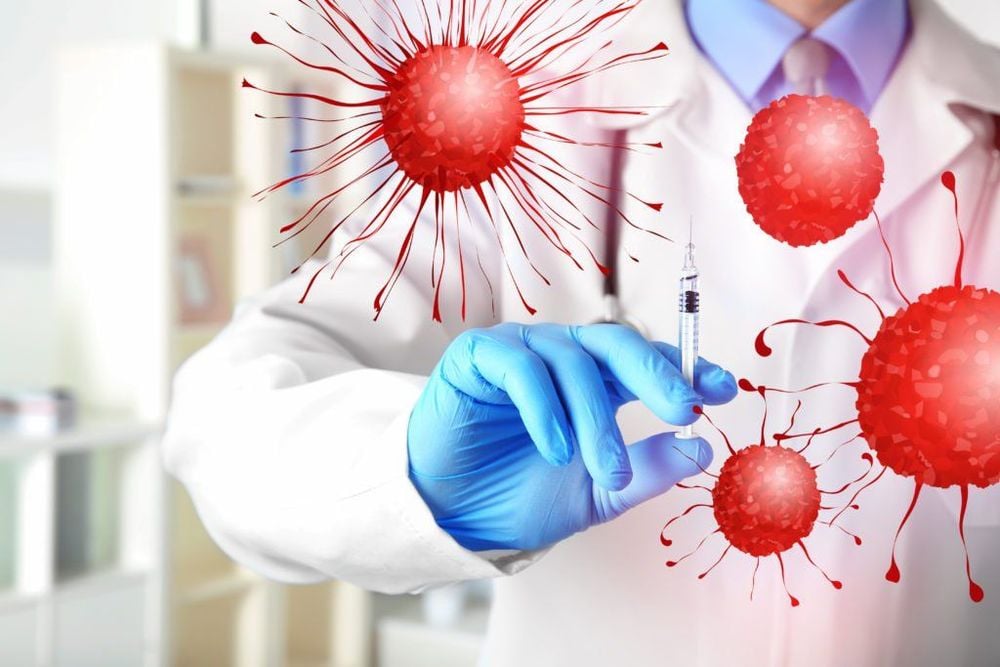
2. What to do when the cancer marker index is high?
Usually when cancer cells grow and spread around, they will produce certain substances in the blood. Therefore, when blood tests show that these indicators increase, it is likely that the patient has cancer.In the case of the first test, if the cancer marker test index is within the biological reference range, there is a high probability that the patient will not develop a malignancy.
If the cancer marker test index rises above the normal limit and increases continuously (over 25%) on subsequent tests, a case of malignancy may be considered because they may reflect the presence of cancer. development of cancerous tumors. If the cancer marker test index does not change or tends to decrease in subsequent tests, it can conclude that the patient does not have a malignant tumor.
However, it should be noted that elevated cancer markers can also appear in some cases of normal physiology or benign pathology.
AFP is elevated in primary liver cancer and hepatitis , but is also elevated in pregnant women. CEA is elevated if the patient has colorectal cancer, but is also moderately elevated if the patient has ulcerative colitis, colon polyps, COPD, cirrhosis, or a heavy smoker. The CA 12-5 test is used to screen for ovarian cancer but tends to be elevated in some other benign conditions in women (ovarian cysts, endometriosis, endometriosis, etc.). ) In order to have an accurate cancer diagnosis, it is still necessary to rely on tumor biopsy, combining clinical examination, cancer markers with other medical diagnostic methods (endoscopy, CT scan, X-ray scan, etc.) X-ray, PET scan).
Trắc nghiệm: Thử hiểu biết của bạn về bệnh ung thư
Ung thư là nguyên nhân gây tử vong hàng thứ 2 trên thế giới. Thử sức cùng bài trắc nghiệm sau đây sẽ giúp bạn có thêm kiến thức về yếu tố nguy cơ cũng như cách phòng ngừa bệnh ung thư.
Bài dịch từ: webmd.com
3. Conclusion
Thus, the implementation of cancer markers to find cancer markers will be most used to monitor cancer treatment, or appoint screening for patients with high-risk factors. . Particularly for healthy people, the appointment of these tests should be done under the direction of a doctor.For the most effective cancer screening, patients should talk to their doctor about unusual signs, lifestyle habits, personal medical history and family members. From there, doctors will examine, examine and perform necessary tests in accordance with the age and health of the patient. At the same time, advise on proper nutrition, rest and exercise to have the most accurate indicators of health status.
Advice for patients to adjust the cancer marker index:
Enhance health training, exercise and sports Add more water to the body (3 liters/day) Limit smoking, drinking coffee coffee, alcohol. Limit consumption of fermented products (salted tomato, pickles, pickled bamboo shoots..etc.) Should get enough sleep to have enough energy for the body. If cancer is not diagnosed early, it will cause a very high mortality rate, even current treatment methods such as surgery, chemotherapy, radiation therapy... if conducted at a late stage, also reduce effectiveness. significant results. Therefore, proactive screening and screening of cancer at an early stage is very necessary and especially important.

Please dial HOTLINE for more information or register for an appointment HERE. Download MyVinmec app to make appointments faster and to manage your bookings easily.





